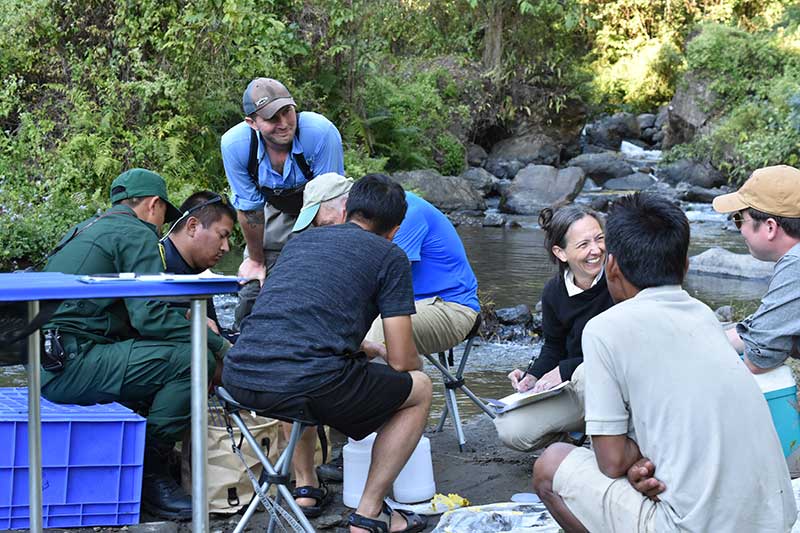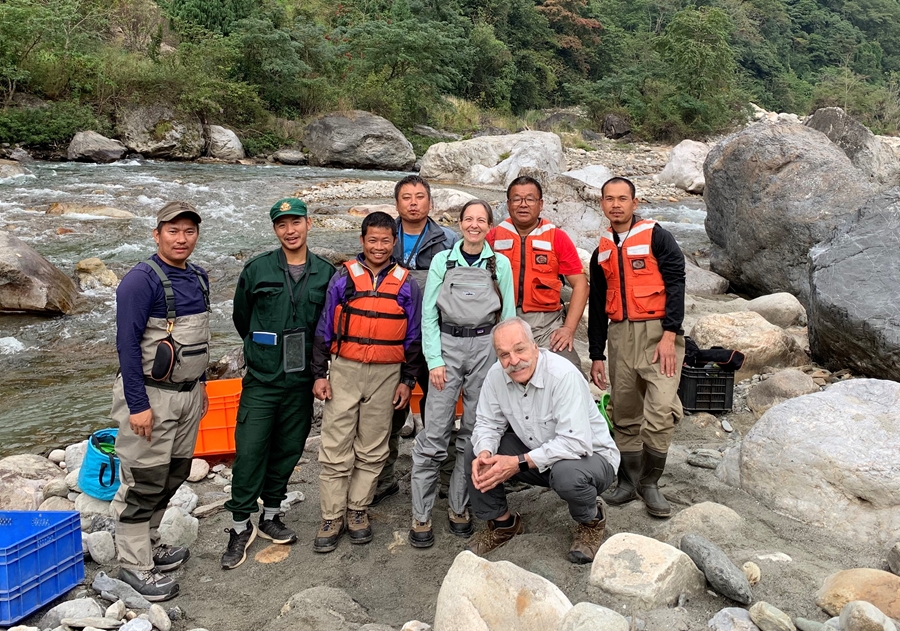Communicating science is a difficult but vital responsibility, especially as the world grapples with a pandemic and catastrophic weather events. U of A biology professors Marlis and Michael Douglas, in conjunction with the American Fisheries Society Committee on Climate Change, address the challenges and offer guidance for effective science communication to the public in a recent publication of Fisheries.
The publication employs a storytelling framework — the ABT narrative: Agreement (And); conflict (But); resolution (Therefore). It begins with non-disputable information (e.g., We all love fish, and fish need water to survive), highlights the problem (but recurrent drought, as driven by local climate alterations, has both sustained and prolonged low water conditions), and offers a potential solution (therefore we must identify deep water refuges with lower temperatures where fish can survive). The authors take the narrative a step further, though, with a call to action (your assistance is required to protect fish).
The article argues that personal connection is the key to successfully engaging the public. By appealing to widely shared values, communicators can help the public understand and retain science. In short: Connect with what the audience cares about; demonstrate that you also care; then relate a story within which the audience can visualize themselves as being participatory.
The American Fisheries Society also published a World Climate Statement that involved both Douglases. Developed collaboratively with 110 aquatic scientific societies representing more than 80,000 scientists worldwide, it appeared in Nature Magazine Briefings and Nature Correspondence. The statement followed the ABT narrative, emphasizing that thousands of scientific studies have verified how omnipresent change is, with declines in fish harvest, degraded coastal ecosystems and acidified ocean waters. In North America, for example, 40% of freshwater fishes are now seriously imperiled. Rapid action by governments and citizens is requested, to include a transition in energy sources as well as the restoration of environments that sequester carbon, such as wetlands.

The Douglases processing fishes with two of their U of A graduate students and Bhutanese fish biologists.
Topics
Contacts
Andy Albertson, senior director of communications
Research and Economic Development
479-575-6111,
